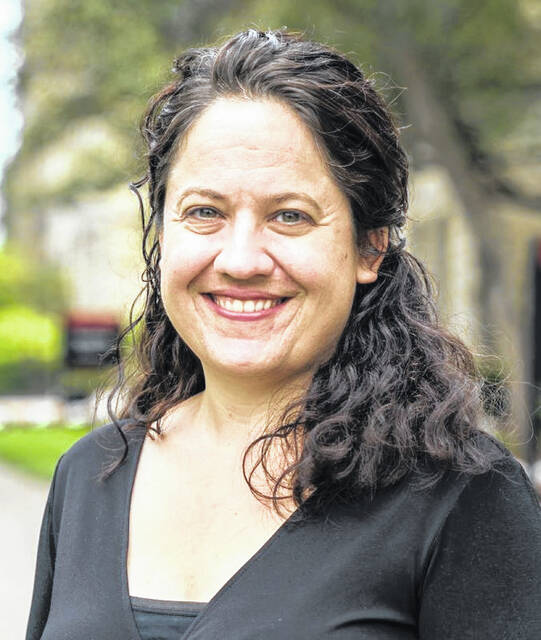
James Knox Polk Weber attended Ohio Wesleyan University from 1868 to 1871, in the shadow of the Civil War, and shared his OWU journey through a series of 50 letters written to his parents in Caledonia, Ohio.
Weber’s letters home are the inspiration for this year’s Joseph and Edith Vogel Lecture, scheduled to be presented at 7 p.m. March 28 via Zoom. This year’s speaker is former Ohio Wesleyan professor of History Ellen Arnold, Ph.D., now an associate professor of Premodern Environmental History at University of Stavanger in Norway.
“By looking at this set of letters, we get glimpses of daily life at OWU in the period, see some of the challenges that faced young people finding their way in the world after the Civil War era, and see aspects of OWU’s scholarly past and its relationship with Delaware,” said Arnold, who taught at Ohio Wesleyan from 2010 through 2021.
Arnold is a medieval and environmental historian, trained at the University of Minnesota. During her time at Ohio Wesleyan, she directed the Sagan National Colloquium twice and participated in travel-learning courses that involved accompanying students to countries including the Netherlands, Germany, Austria, Hungary, and United Kingdom.
She is the author of the book “Negotiating the Landscape: Environment and Monastic Identity in the Medieval Ardennes” and recently completed the manuscript for her second book, “Remembered Riverscapes.” Currently, Arnold is working on a volume about water for the Routledge series, “Themes in World History.”
Arnold’s presentation is Ohio Wesleyan’s 2021-2022 Vogel Lecture, sponsored by the Department of History. The online event will begin with a memorial tribute to Ezra Vogel, Ph.D., who grew up in Delaware and endowed the Vogel Lecture in honor of his parents. A retired Harvard University professor and author of the critically acclaimed book “Deng Xiaoping and the Transformation of China,” Ezra Vogel died in December 2020.
To register for the free Zoom event, visit www.owu.edu/VogelLecture. Learn more at www.owu.edu/history.


